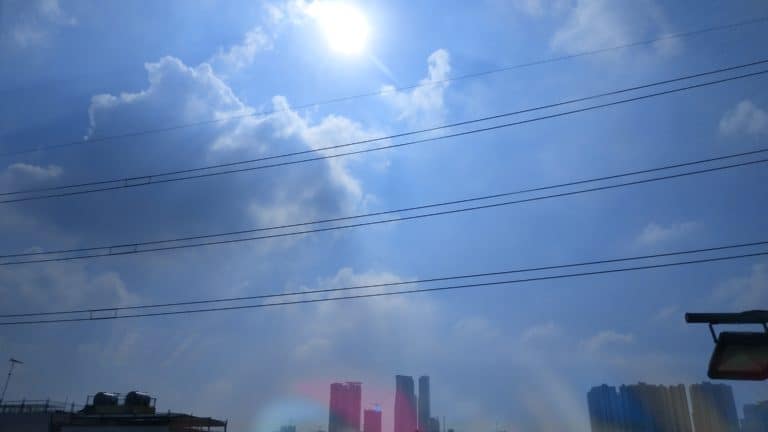
The International Court of Justice is due to hear from 98 states and 12 international organisations - including many first-time participants in these kinds of proceedings. Today, the world’s top court began hearing evidence on what could be the largest case in its history. During two weeks of hearings, more than 100 countries and organisations are due to submit their arguments on what states should be legally required to do to combat climate change.
Hearings are taking place at The Hague in the Netherlands from 2 to 13 December with the International Court of Justice (ICJ) expected to deliver an advisory opinion in 2025. The proceedings have particular significance for the small island states which pushed for the opinion. They come just a week after developing nations denounced a deal at COP29 to provide to help poorer countries cope with climate change as woefully insufficient.

Opening the hearings, Vanuatu told the ICJ that it had once again “witnessed first-hand” the failure of the international summit. Vanuatu is a low-lying archipelago east of Australia which is particularly vulnerable to extreme weather, water insecurity and the threat of sea-level rise. For the people of the island state, the “prolonged and systemic failure of the COP process” has cost them their wellbeing, cultures and even their lives.
The call for an advisory opinion from the ICJ on climate change is part of an attempt to establish a stronger framework of accountability that sets clear international legal obligations for climate action. Small Island Developing States (SIDS) have led the charge, with the idea first proposed by law students in Fiji five years ago. It was then taken up by Vanuatu which successfully led (UNGA) to seek an opinion from the ICJ.
Last year, the UNGA finally asked the court for an opinion on “the obligations of States in respect of climate change”. There are two fundamental questions the 15 judges from around the world are facing about a state’s obligations in international law. The first is what is their duty to protect the climate? The second is what are the legal consequences when they cause significant harm through their actions or inactions? The judges were also briefed on the science behind the issue at hand by the UN's Intergovernmental Panel on Climate Change before the hearings began.
The advisory opinion the ICJ delivers won’t be legally binding so can't directly force nations to act but it will be politically and legally significant. It could see climate action and commitments grounded in the rule of law. This would mean countries could be held accountable for failing to address climate change adequately.
The advisory opinion is likely to influence in courts all over the world - including those where small island states are seeking compensation from developed nations for historic climate damage. Vanuatu told the ICJ today that the outcome of these proceedings will “reverberate across generations, determining the fate of nations”. The conduct on trial, it said, is that of states which have failed for over a century - despite dire warnings - to rein in their emissions.
“Seven years ago, 196 parties adopted the Paris Agreement, which was a monumental step meant to safeguard both people and the planet,” Ralph Regenvanu, special envoy for climate change and environment in the government of Vanuatu, told journalists ahead of the hearings. “Yet nearly a decade later, Vanuatu and other small island states are still trying to prevent further harm while repairing the loss and damage that has already occurred, while seeing a lack of action by these parties that have signed up to the Paris Agreement.” Regenvanu adds that SIDS are among some of the worst affected by climate change despite contributing just a fraction of global emissions.
“The in lowering emissions and slowing down climate change despite the Paris Agreement necessitates the legal action we are trying to take now.” The ICJ is due to hear from 98 states and 12 international organisations - including many first-time participants in these kinds of proceedings. A total of 91 written statements and 62 additional written comments have already been submitted.
“It marks the most extensive participation in ICJ hearings ever. In terms of participation, we can safely say that this is the biggest case in human history,” Margaretha Wewerinke-Singh, legal counsel for Vanuatu's ICJ case and international lawyer at Blue Ocean Law told journalists. What makes these proceedings historic, she adds, is not just their skill but their substance.
These aren’t future risks or theoretical threats but current reality for millions around the world. “Territories are already disappearing, livelihoods are being destroyed, and fundamental human rights are being violated right now. And the conduct that is causing these violations has long been disguised as lawful.
” The ICJ hearings are part of a trio of legal advisory opinions on climate requested from some of the world’s highest courts within the space of six months. Earlier this year confirmed that parties to the United Nations Convention on the Law of the Sea (UNCLOS) are obliged to take measures to combat marine pollution caused by climate change. The Inter-American Court of Human Rights is expected to be the next and is due to publish its advisory opinion at some point in 2025.
.














